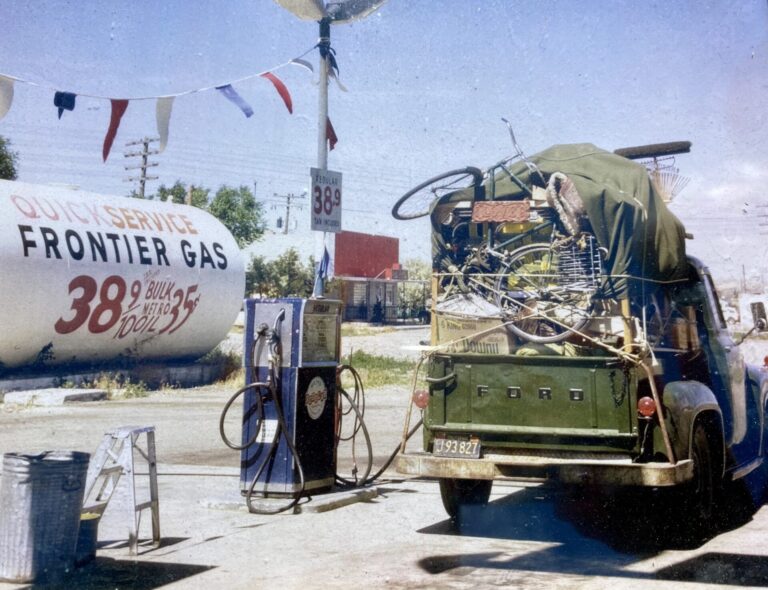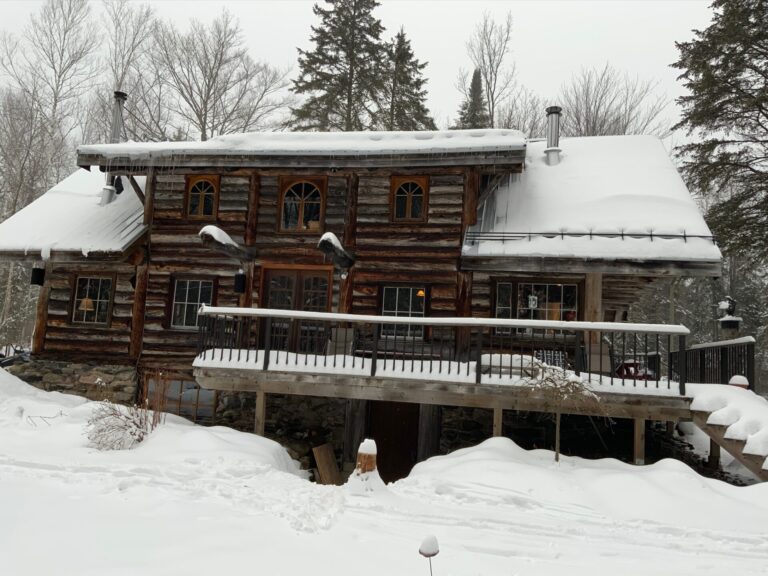There are few things as Canadian as BeaverTails pastries except, maybe, for a tongue stuck to a frozen flagpole.
But what many might not know is that the husband-and-wife founders of the popular pastry are former school teachers who moved here from northern California during the counterculture movement of the 1960s and ’70s.
Rebels
Grant and Pam Hooker belonged to a generation of student radicals opposed to war, nuclear weapons and the establishment.
OBJ360 (Sponsored)

Get ready to ROCK! The Lumière Gala returns to the Brookstreet this September
Brookstreet has always been a rock star in the world of hospitality. Now, the hotel is truly embracing the rock and roll vibe with this year’s themed gala in support

Game on! How Ottawa REDBLACKS business experiences create meaningful connections
An Ottawa REDBLACKS game may be the only place a business leader should leave their game face at the door.
Their love of Canada really began in the early 1970s. That’s when the adventurous couple piled their belongings into an old ’53 Ford pickup and a 1964 Chevy van and drove thousands of miles across the U.S. with their two young children to spend the summer in the Ottawa Valley town of Killaloe. They’d heard through the grapevine that there was an abundance of cheap land for sale.
The Hookers liked the area. So much so that they ended up buying 100 acres of bush for $4,200. They left their teaching jobs in the United States to return as full-time residents of the Killaloe area, living as homesteaders in a shack built from an abandoned horse stable with no running water or electricity.
Grant started a log-home building business and eventually got to work on what would become a beautiful two-storey log home for his family.


BeaverTails – The Pastry
As for the BeaverTails pastry, it made its first public appearance in 1978 at the Killaloe Craft and Community Fair. The recipe for the flat, whole-wheat/cracked-wheat dough treat, sprinkled with cinnamon sugar and other toppings, originated with Grant’s grandmother, who’d been part of a large group of former Germans from Russia (near Ukraine) who immigrated to Medicine Hat, Alta., in 1912. Grant was born in 1944 in Portland, Ore., to his Alberta-born Canadian mother and an American father.
The Hookers next introduced their BeaverTails pastry to Ottawa’s ByWard Market. It was not the shopping and entertainment district it is today, but more of a traditional farmers’ market.
“We were trying to make enough money to buy windows for our log house,” Grant explained. “We had plastic where the windows were supposed to go because that was all we could afford.”
There was something about Ottawa, with its hustle and bustle, that caught Grant and Pam’s entrepreneurial eye.
“We said, ‘Let’s roll the dice,’” Grant recalled of their decision to relocate the family from Killaloe to Ottawa to sell their pastries in the ByWard Market. They opened on June 2, 1980. Their two children, then 13 and 14 years old, were the Hookers’ main staff, earning $2 each per day.
“That first summer, nobody knew what a BeaverTail was,” said Grant. “Nobody came, nobody was interested, because the product was very different. Nobody recognized what we were serving.”
During those early years, the Hookers had to devote their full energy to introducing the unusual product, shaped like a beaver’s tail. “We told our staff that their main job was to make eye contact with the public and to give samples to people walking by in hopes that they would be adventurous and try something they’d never had before.”

That all changed the following winter, when they started selling their tasty treats to skaters on the Rideau Canal during Winterlude. “We were able to introduce our pastries on the Skateway to so many people in such a positive way,” said Grant, who credits the father of Winterlude, Rhéal Leroux, and the National Capital Commission for helping them get their start.
Grant used his carpentry skills to build the couple’s first store, which remains in the ByWard Market, and their first portable kiosk, or “BeaverMobile,” for service on the Skateway. He recruited a couple of his builder friends from Killaloe to help him construct three more BeaverMobiles, all of which are still in use on the canal today.
“Going through the homesteading experience in the Canadian bush during those winters in the 1970s made what we did on the canal relatively easy,” he said of the challenges of operating a business in freezing temperatures on a sheet of ice.
This past winter was the first time in the history of Winterlude that the Skateway didn’t open, due to warm temperatures.
“If this had happened when we were just starting out, we would have been in big trouble,” Grant acknowledged. “But because this was our 42nd season, we’ve been able to save a little money to help absorb Mother Nature’s major kick in the pants.”
As the popularity of the ByWard Market grew over the years, so did sales. “We caught a wave,” said Grant, of “being in the right place (the ByWard Market) at the right time while taking a chance on an idea we thought would work.”
ObamaTail
From their simple beginnings, BeaverTails has become almost a household name across Canada, grabbing headlines in 2009 when its kiosk on George Street served a special “ObamaTail” to then-U.S. President Barack Obama during his first state visit to Ottawa. The Hookers also presented Obama with a “Free BeaverTails for Life” card and had one of the cards prepared for President Joe Biden on the wild chance that he might stop by their Market location during his visit last month. The cheeky card read, “Valid only with two pieces of photo ID.”
The Hookers credit the roughly 10,000 to 12,000 young people who have worked for them overthe years as key to their success. The mostly high school-aged employees helped the Hookers figure out what ideas worked and what didn’t and how they could improve their operations.
“We built a business on the shoulders of very responsible, intelligent young people and our senior executives today have all been with us since their first years out of high school,” said Grant.
The couple believes their “treat others the way you would want to be treated” approach to management served them well. “We love youth, we absolutely do,” said Pam. “We gave them respect and a chance to use their developing abilities. If they showed promise, we moved them up the management ladder.”
Going global
In 2002, the Hookers decided to sell their majority ownership of the BeaverTails Canada Inc. franchise system to former summer student-turned-franchisee Pino Di Ioia, along with Di Ioia’s wife and brother. The Hookers retained 35 per cent ownership of the franchise company, carving out the National Capital Region, which they continue to control with partner and CEO Andy Cullen, as their exclusive master franchise territory.
The Hookers’ young partners, operating from Montreal, have built the franchise and licensing business to the point that there are now roughly 200 BeaverTails locations, including operations in Dubai, France, Japan, Mexico and the United States.
City-builders
While operating and growing BeaverTails, the Hookers also involved themselves in community-oriented projects. In the mid-1980s, Grant co-founded Save the ByWard Market Inc., an organization that successfully lobbied the city to exclude a 17-storey highrise development on George Street directly across from the ByWard Market building. The stoppage of that structure led to the Market being designated a heritage conservation district in 1991.
Springtime for tulips
In 1990, the Hookers saved the Canadian Tulip Festival from financial crisis by buying it out of bankruptcy, reformatting the event and serving, on a volunteer basis, as the festival’s managers until 1993. Their involvement with the festival, in one capacity or another (including their current status as “directors emeritus”), has been nearly continuous since those early years.
In 2018, Grant and Pam again took the festival reins and served as the president/CEO and secretary, respectively. Calling on the trust built with the NCC on the Skateway over the years, they received permission to move the festival to its current location among the NCC’s annual tulip display in Commissioners Park near Dow’s Lake.
Unlike many major Ottawa festivals, admission to the Canadian Tulip Festival is free, which, according to current festival CEO Jo Riding of Karma Creative Solutions, means that the event draws a large demographic of families, new Canadians, flower buffs and tourists.
“Commissioners Park during the tulip bloom and our Tulip Festival is a true mosaic of Canada,” said Riding. “It lifts the heart to stroll the grounds surrounded by people of all ages and backgrounds … all celebrating the end of winter amid the beauty of the NCC’s tulip artistry.”
The NCC plants more than 300,000 bulbs each year in Commissioners Park. The programming, promotion and installations in the park are all organized and run by the festival crew.
To do that, the festival organization, led by Riding, must also scramble for funding to pay the bills. The City of Ottawa’s festival grant of $75,000 is currently the only source of dependable annual funding. Riding and her small team of staff, along with a handful of committed volunteers, operate on a lean cash budget.
“Corporate sponsorships, together with assistance from other levels of government and our annual sale of specialty tulip bulbs on the festival’s website, are key to the continuance of the 72-year-old annual spring celebration in Canada’s capital,” said Riding.
Loving what they do
The son of a minister, Grant holds a master’s degree in modern European history from the University of Oregon and was in charge of a school for troubled teens for three years in northern California.
Grant and Pam met in 1962 in math class at a church college in Indiana. They’ve been married 56 years.
The Hookers, who are now in their late 70s, divide their time between their residence in Ottawa’s Lowertown and their log home near Killaloe (the home finally got an indoor toilet in 2017 after years of the family happily making do with their outhouse). They also enjoy exploring, whether it’s on the water in their 1984 Grand Banks trawler, or on land in their 1974 FMC motorcoach.
“Building the business with Pam has been a true labour of love,” said Grant of a love that extends to his wife. The pair maintains an affection for “the young people whose lives, at work and at play, we’ve had the privilege of sharing.
“Our work in the ’80s to help keep the Market’s heritage nature and our work with the Tulip Festival has given us a sense that we’ve given as well as taken. We’re grateful to Ottawa for accepting us and we’re grateful to everyone with whom we’ve connected.”

Quick Q&A with Grant and Pam Hooker:
What advice would you give to a young person going into business?
Pam: “Failure is not a stopping point. It’s a go-around, go-over, go-under, learn-and-carry-on point.”
Grant: “Be ready to do whatever it takes to make things work. If it means changing your habits, change your habits. If it means doing things outside your comfort zone, learn how to do things outside your comfort zone. Always be looking for better ways.”
Who has most inspired you?
Grant: “My dad. The way he treated people. Never unkind.”
Pam: “My vision of my better self.”
What do you consider your greatest success?
Pam and Grant: “Selecting good people and having good people select us.”
caroline@obj.ca





